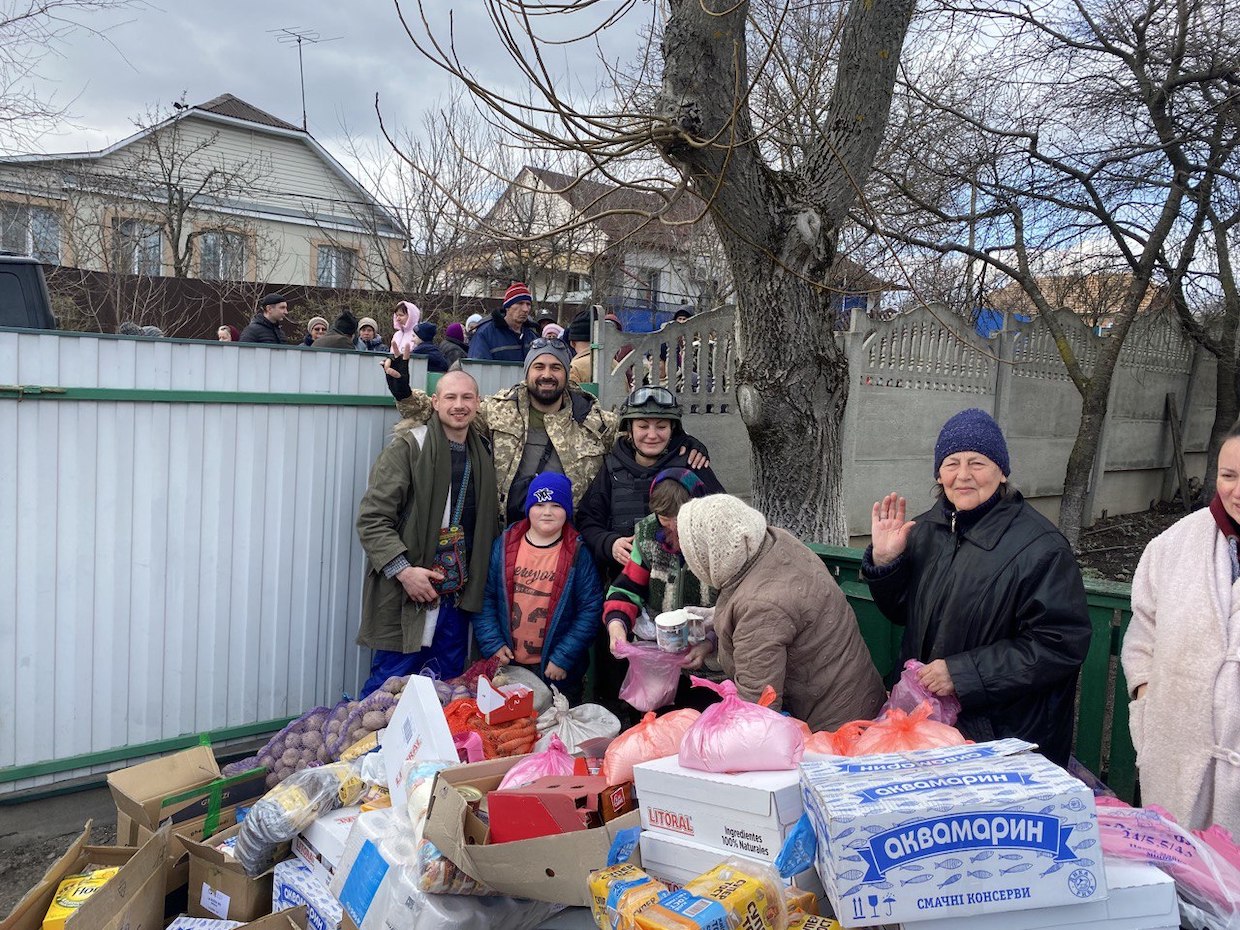
Former SCA Ukraine Chapter Coordinator Olena Sereda (with helmet, goggles) delivering food to people in the Kyiv region. Courtesy photo.
Editor’s Note:
The following Q&A was conducted between longtime coffee market specialist Richard Hide and Ukranian specialty coffee professional Julia Dziadevych, who has been helping to galvanize efforts to support the Ukranian coffee community since the Russian invasion began in late February.
Hide previously led the sustainability-driven coffee work of Twin and Twin Trading before largely focusing on the promotion and development of coffees from the Democratic Republic of Congo and the Ethiopian forests. He and Dziadevych previously met at World of Coffee in Dubai in January, just prior to the series of events that would upend daily life for all Ukranians. Portions of this interview have been shortened for clarity.
The Specialty Coffee Association has compiled a list of organizations and campaigns currently assisting the Ukranian coffee community. For more information or to contribute to the initiatives outlined below, contact Dziadevych directly at [email protected] or on Instagram at @kvitkakavy. You can follow the new initiative (mentioned below) Roasted in Ukraine at @roastedinukraine
Richard Hide: Julia, could you tell us about your role in the Ukrainian coffee sector?
Julia Dziadevych: I came to coffee as a conscious switch from my earlier career in tourism. I started as a barista as an important part in the industry, but from the very beginning I aimed to work in green coffee. Since then I worked for a green coffee importing company in Norway and for a green coffee exporting company in Guatemala, and finally made my way being responsible for coffee sourcing and project management at origin in !FEST Coffee Mission, a Ukrainian green coffee sourcing company based in Lviv.
RH: For those who don’t know about the Ukrainian coffee scene, what can you tell us?
JD: The coffee scene in Ukraine is stunning! Well, it used to be… but we are definitely bringing it back and it will thrive even better! The amount of specialty coffee shops and micro roasters, as well as big roasteries, is overwhelming. Almost every coffee shop has its unique style, approach and incredible design. Coffee is highly appreciated and consumers are actually well educated about it. During the Covid lockdowns there was a boom for home brewing and some of the roasteries remained at 80% of their production.
RH: When we met at World of Coffee Dubai in January and we talked about the challenges of coffee farming in the conflict zones of DR Congo, Virunga Coffee (farmafrica.org). We could never have imagined that Ukraine would itself be plunged into a terrible war just four short weeks later. What has been the impact on the coffee community?
JD: Well, honestly, I’m not sure how to explain this, but as the matter of the fact a lot of coffee shops and roasteries were just turned to dust, because of bombing; some of them are still under Russian occupation. A lot of coffee professionals have had to look for refuge in safer parts of the country as well as abroad and start their life from scratch.
But at the same time, some of them have remained where they were. And even though they have no more work they have started to volunteer for local communities while making impossible things possible: finding and delivering humanitarian aid; connecting people; organizing fundraising; cooking; buying medicine for those in need; and just doing hundreds of things no one used to do in normal life.
[Everyone in] the coffee community that managed to remain open — whether in safer parts or in areas that are under frequent bombing — is doing something for the Ukrainian Army, refugees and people in need. Some of them have switched to being full-time kitchens for the territorial defense forces and refugees; some have sent all they can to the guys defending us on the front line. Needless to say, we have all emptied our pockets to support different fundraising, or [for] buying and delivering things ourselves.
RH: I know that you and your colleagues at !Fest Coffee Mission are deeply engaged in offering solidarity and practical support to colleagues in the Ukrainian coffee sector. Can you tell us what you are doing?
JD: As you can imagine, we are doing a million things right now for the coffee community, for Ukraine and for ourselves as a company. Our managing director Dimitri, who has a home in El Salvador, is also a national coordinator of SCA Ukraine. My colleague Olga and I came in February to El Salvador for an origin trip to Central America with some roasters. We had only completed the first 14 days of the trip when flights were cancelled — and in a few more days war began. So we practically have a 24/7 office here.
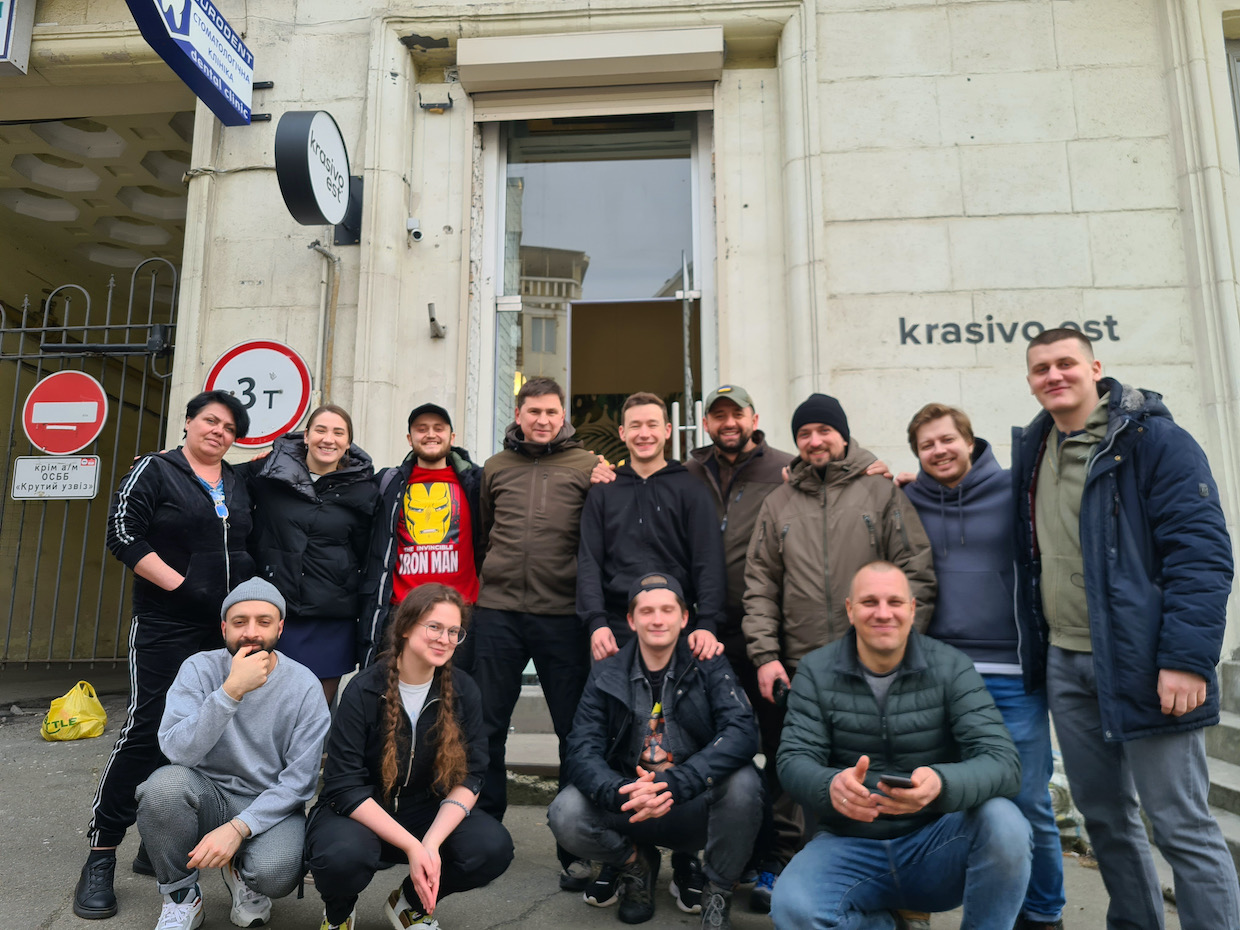
Volunteers at the Krasivo est Coffeeshop, which has been transformed into a kitchen to provide food to local Ukranians. Courtesy photo.
We are currently hosting six roasters from Kyiv and other cities on the premises of !FEST in Lviv and we are ready to welcome more, so they can continue to work. We are doing that for free and on a collective basis, so roasters can share our and their own roasting and packing equipment.
We have made an open chat in Telegram where displaced people from the coffee community can find a job in safer parts of Ukraine as well as abroad and people who are willing to hire someone can post their vacancies. It’s actually working very well!
We’ve started a free educational marathon for the SCA community on how to manage mental health, keep spirits up, unite and inspire teams, find new markets and [aid in] business decisions for all the coffee community on the SCA platform: https://www.instagram.com/sca.ukraine/
We’ve started a “Roasted in Ukraine” initiative to support Ukrainian roasters with export procedures, logistics and marketing [for] their coffee in Europe so they can sustain their business in these difficult times.
We’ve booked a big stand for World of Coffee in Milan where every Ukrainian roaster will have the opportunity to be presented for free.
We also came up with the idea of establishing an export hub for Ukrainian crafters and craft companies. The main goal of this initiative is to support small producers from Ukraine from any field with export documentation, certification, logistics and finding new markets. Now we are looking for foundations willing to fund this project for one year.
We [have also started] to save $7 USD for every bag or box of coffee sold to support establishing an orphanage in Chernivtsi for children from Kharkiv and Sumy. There is some technical work to do to set this up, but you can now see it on our website and support by buying coffee or donating directly to the organization.
RH: How can the international coffee community offer additional support?
JD: Oh, the worldwide coffee community is showing great support to Ukraine by establishing fundraising [and] supporting different initiatives, and I’m amazed by how proactive and organized they are…
New ideas and initiatives are coming in all the time. Last week a roaster from Lithuania reached out to us with an idea to buy coffee from us, not for him, but for a Ukrainian roaster. We have several roasteries that keep working under severe conditions in Kharkiv and other cities and [they are supporting] local communities in places where organized humanitarian help can’t reach people. So we decided to [launch] an initiative where any roastery in the world can buy coffee from iFEST Coffee Mission that will be delivered straight to these roasters…
We would highly appreciate marketing support for “Roasted in Ukraine” and once we regain peace again it will be great to get orders for roasting coffee from abroad as the Ukrainian market will need time to recover.
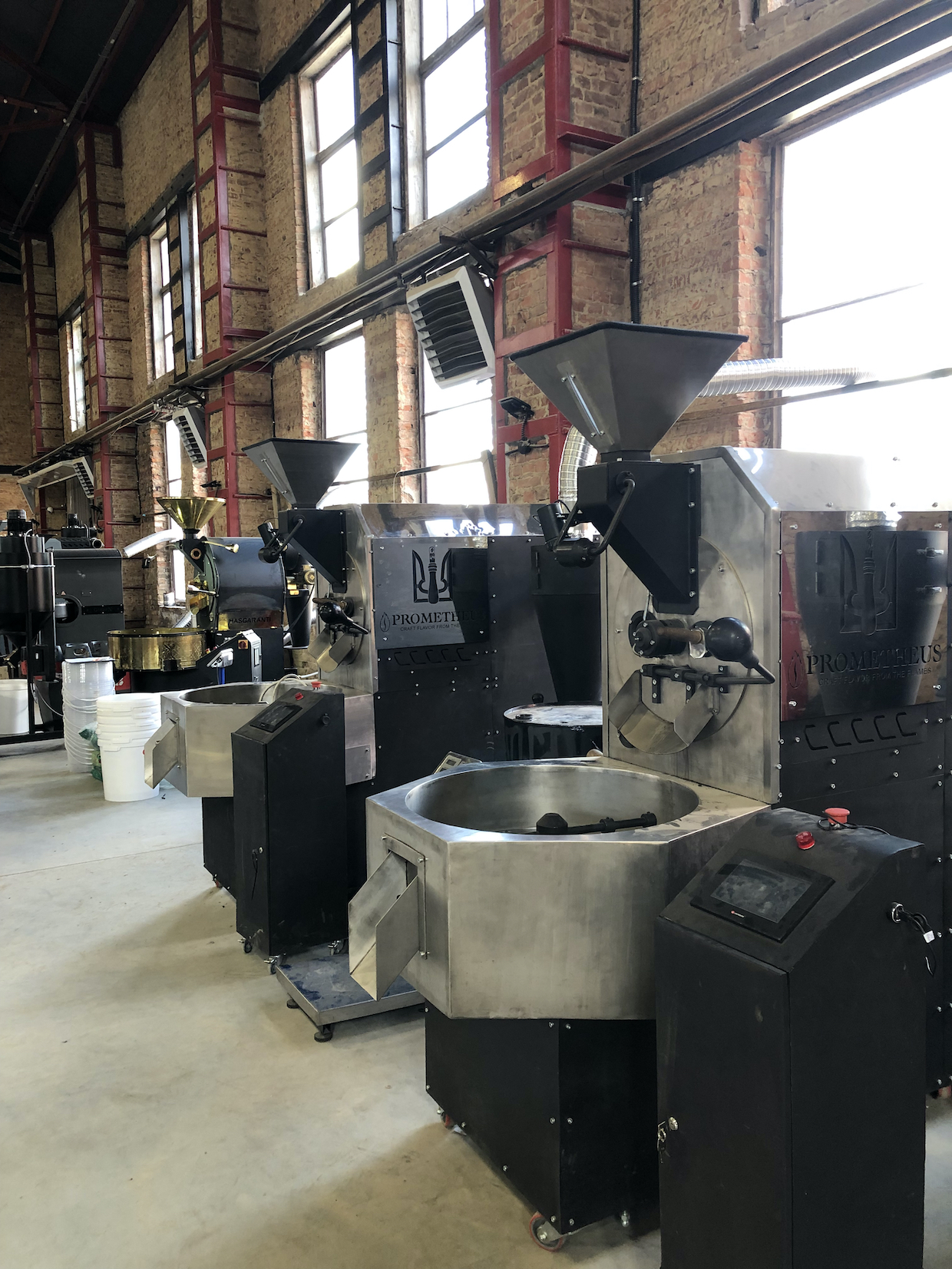
The Roasters Hub at iFEST Coffee Mission in Lviv, Ukraine. All images courtesy of iFEST Coffee Mission.
Only once we have peace can we assess the damage and make a plan to rebuild [physical] premises. Then we will definitely need support, but for now it’s impossible. Also, if there are any foundations willing to support the Export Hub for Ukrainian crafters I’m ready to provide all the related information and start to work on the subject. (Find Juila’s IG here)
I want to thank everyone from the bottom of my heart for supporting Ukraine in any way. I want you to know that it is acknowledged and highly appreciated by every Ukrainian. I’ve never seen a world so united before! Yes, Ukrainians are at the front, but everyone supporting has a part in Ukraine’s victory and establishing peace and democracy!
Note: See more of Richard Hide’s work in DCN here:
Farmers in Eastern DR Congo Overcome Extreme Challenges to Produce Great Coffee
Comment
1 Comment
Comments are closed.



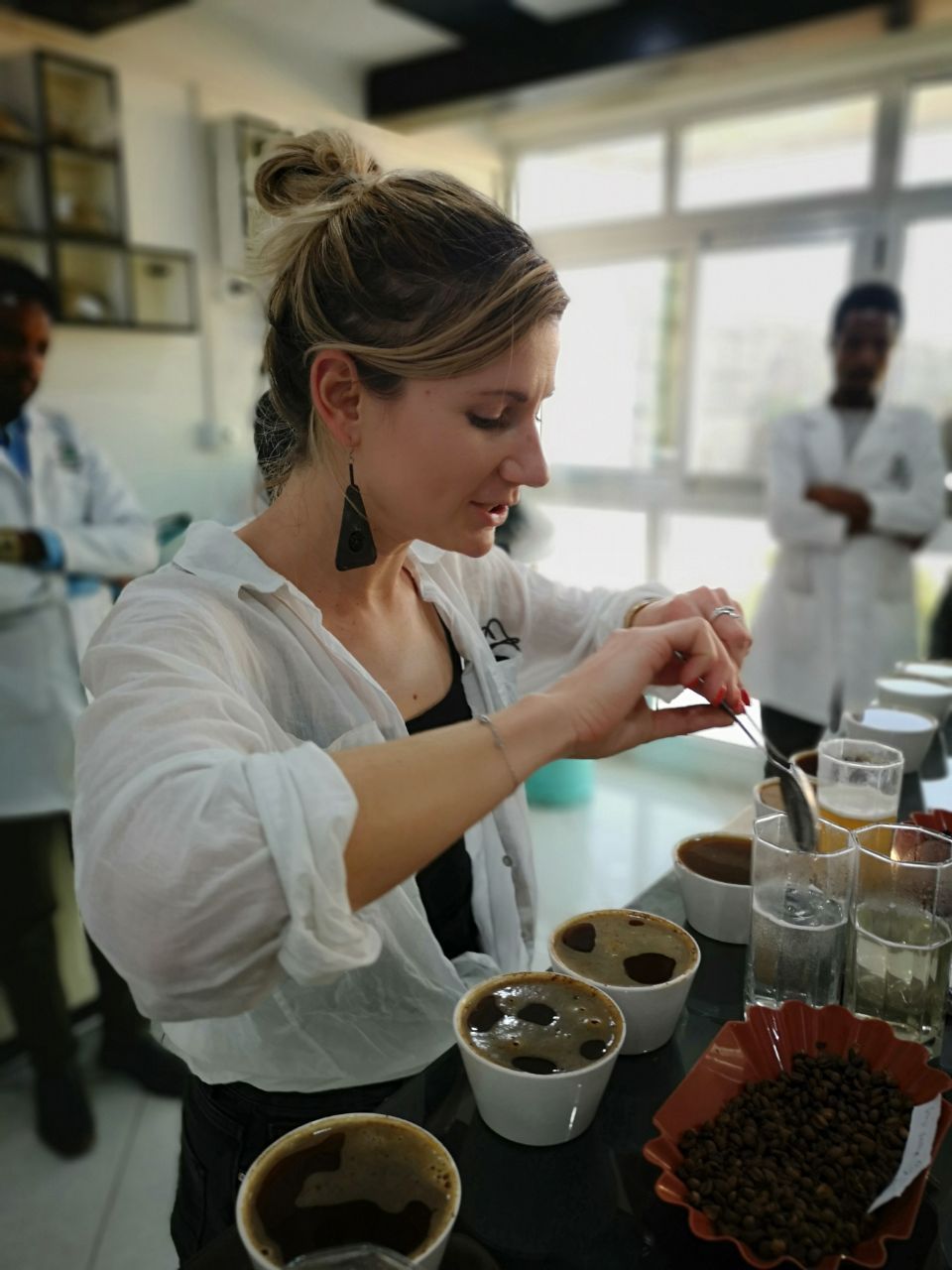
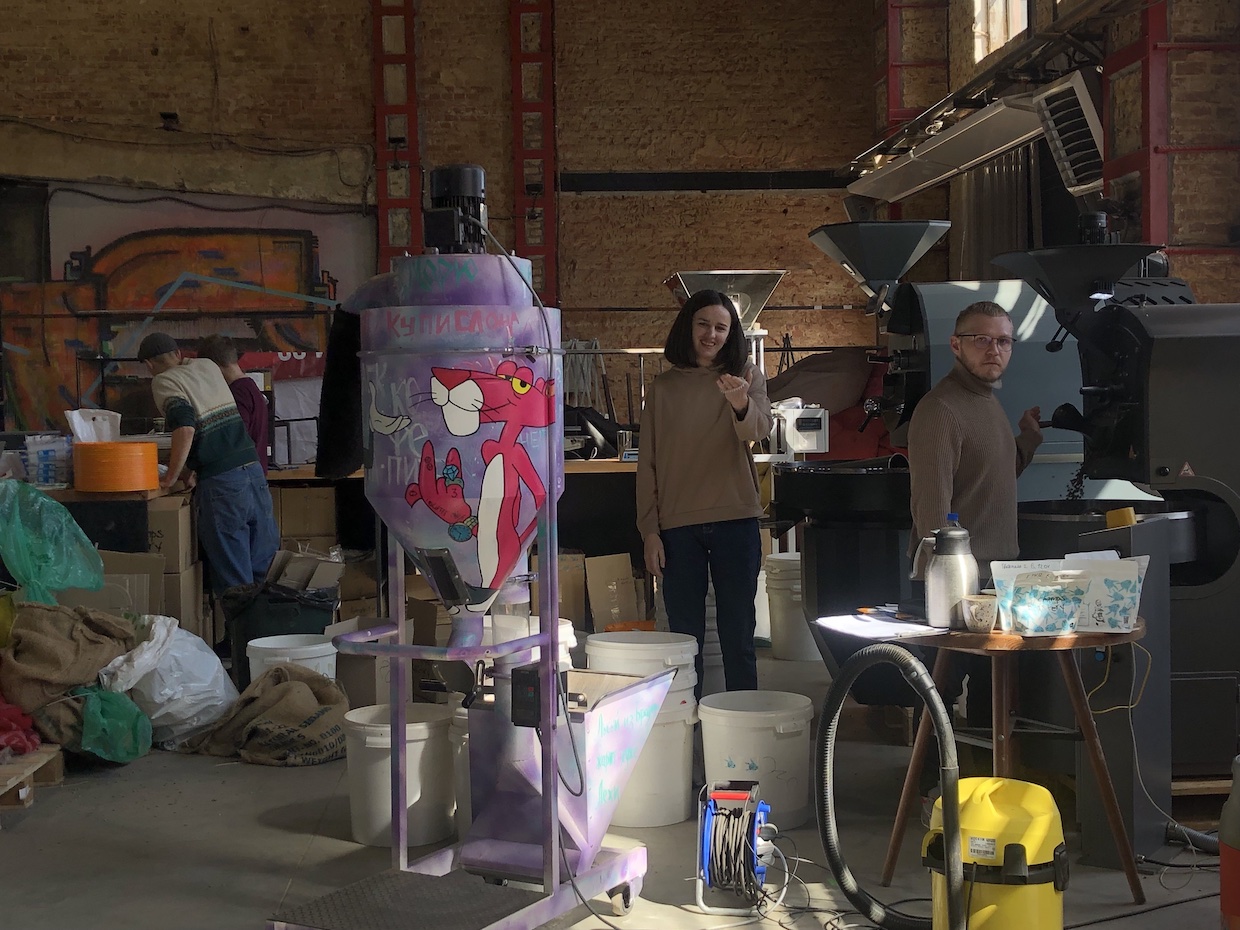



Great work Richard and Julia! It is amazing and humbling to see the Ukrainian coffee sector in such solidarity during these outrageously painful times. We have raised and spent over $150,000 directly supporting evacuations from invaded areas and housing and financial support for refugees arriving in Poland. I am excited to have this direct link to support the work of the baristas, roasters and the rest of the coffee teams in Ukraine. I hope everybody in our wealthy and comfortable industry digs deep to show up for our Ukrainian brothers and sisters. Slava Ukraini!